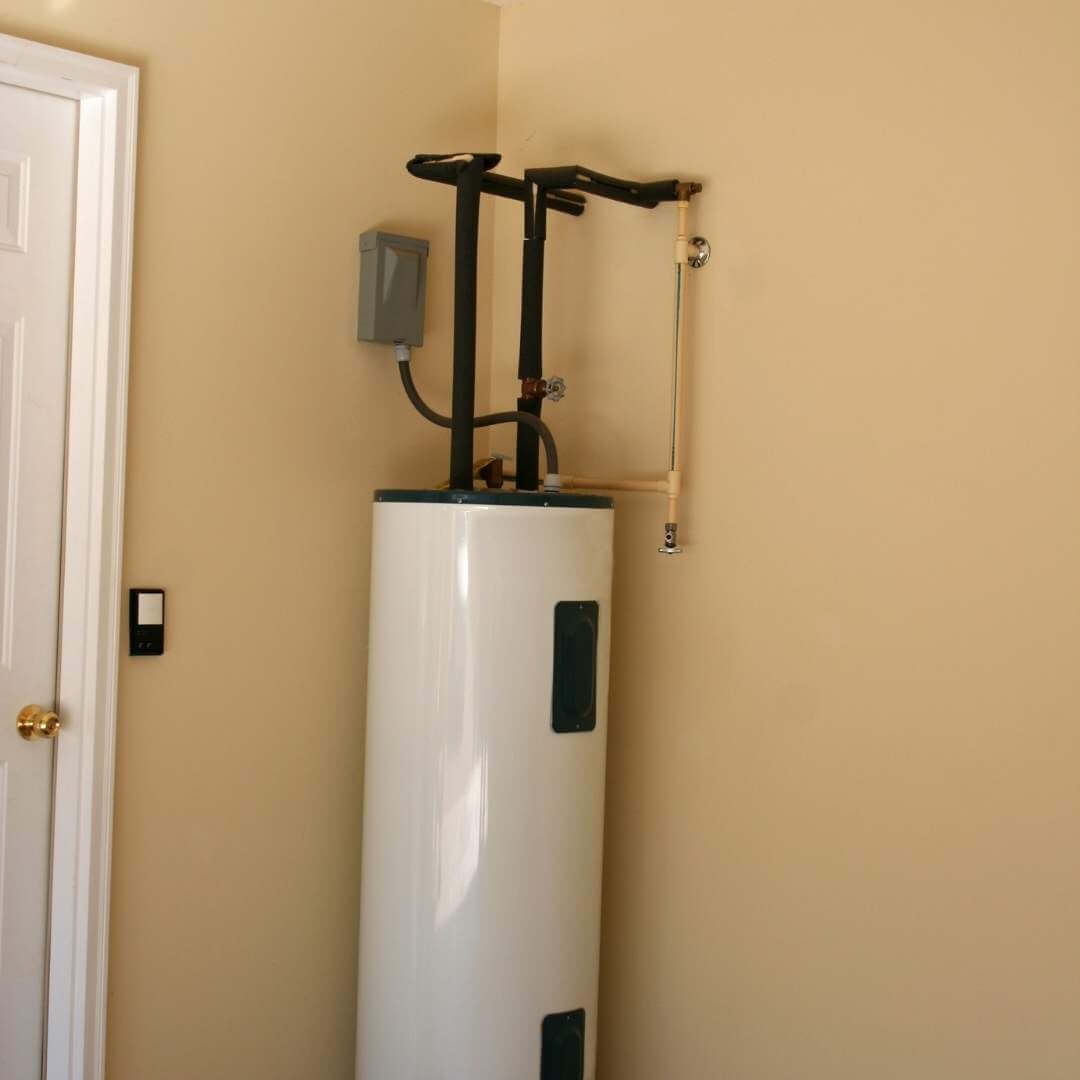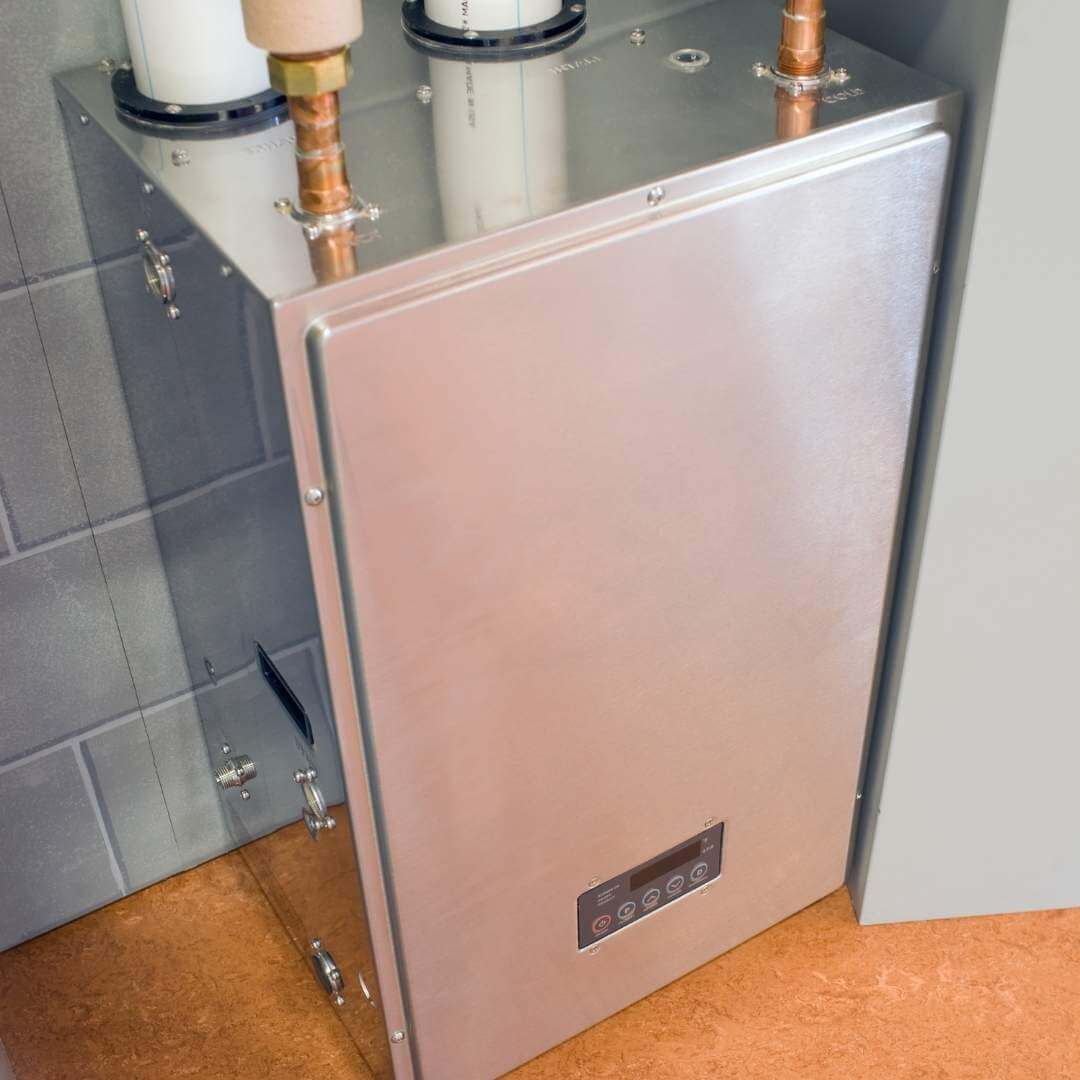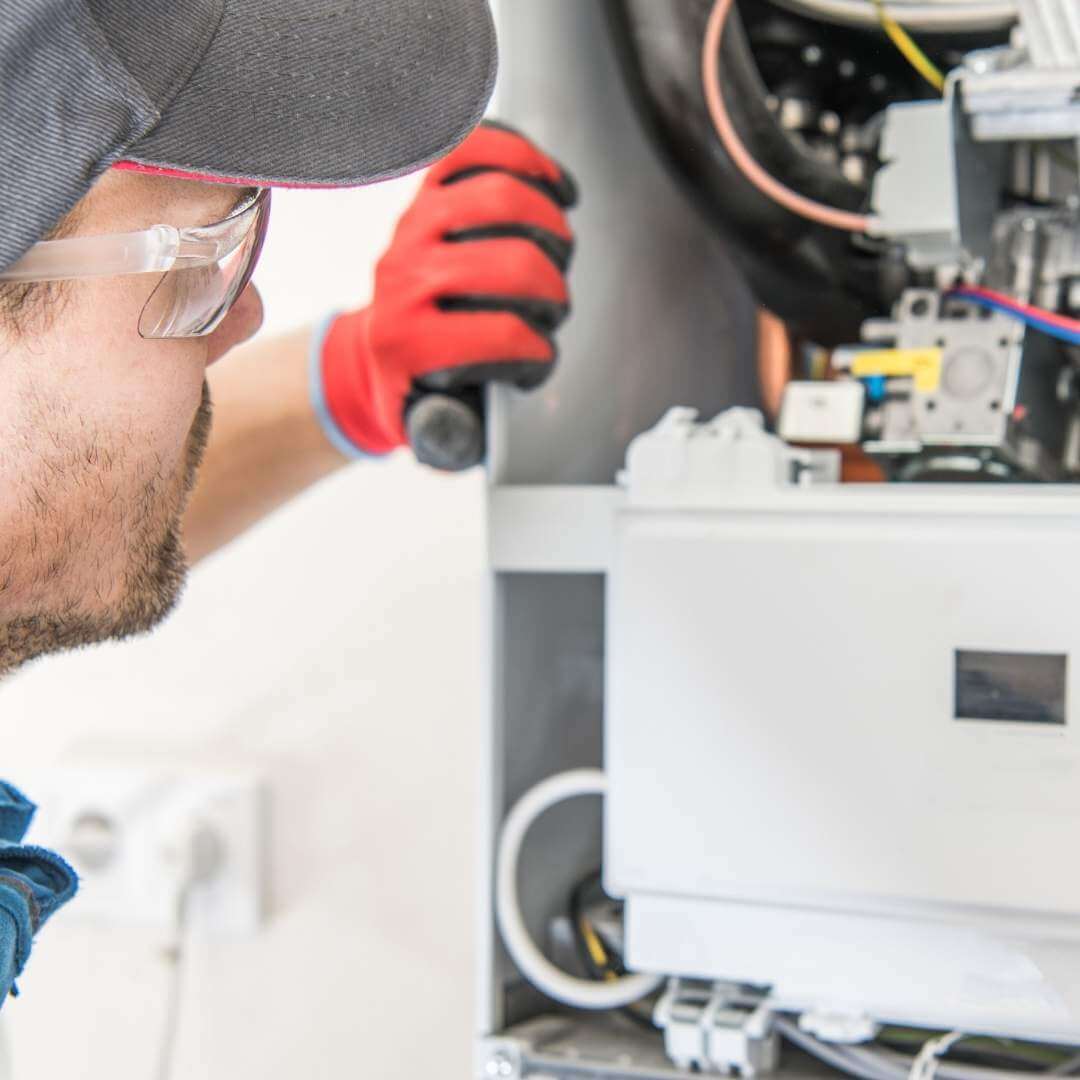Electric vs gas tankless water heater is a question many homeowners end up asking themselves, especially when it comes to buying. This can be quite challenging when you don’t even know the differences.
Truth be told, you often won’t even have the option of choosing. Many apartments and houses are located in areas where you don’t have both options, so you’ll have to adhere to a certain standard.
But what if you’re lucky enough to live in a house that will accept both types of units? Which one is better when it comes to electric vs tankless water heater? Here’s what you need to know!
Electric Vs Gas Tankless Water Heater – Operational Differences

Before you can start deciding on electric vs gas tankless water heater, you need to understand some basic differences between these two units.
The most important – and rather obvious – difference is in their operation.
In general, there are three types of fuel for tankless water heaters:
- Electricity
- Propane
- Natural gas
Propane and natural gas heaters are both considered gas heaters. They work by burning one of these two types of fuels, but they operate pretty much the same. In fact, many large manufacturers produce both propane and natural gas units of the same model.
On the other hand, electric water heaters use electric heating units to warm the water up. This is how they produce large amounts of hot water almost instantly. Whether you’re talking about Stiebel Eltron or Ecosmart, it doesn’t matter. All electric heaters work more or less the same.
When it comes to operation mode itself, it can be hard to decide which one is better. This will entirely depend on your property and your area.
Initial Cost of Gas Vs Electric Tankless Water Heater

Let’s face it – the initial cost is very important as this is likely the first trait of a unit that you’ll see. All other traits are worthless if you cannot afford the unit.
So, who is the winner in this competition? Let’s look into the facts:
- Gas tankless water heaters, especially condensing ones, are expensive. It isn’t uncommon to run into models costing more than $1,000, sometimes even more than $1,500!
- Electric water heaters are usually more affordable. You can probably find a decent model costing just a little bit over $500. Even the tankless water heaters for cold climates tend to be less costly than gas units.
This round was quite easy. The winner is easily the electric tankless water heater!
It’s important to note that non-condensing gas water heaters tend to be much more affordable than condensing models. Some are even just as affordable as electric heaters. However, when you look into the yearly cost, electric vs gas tankless water heater battle results still stay the same. We’ll talk about this in a little bit.
Installation Costs
Another expense you need to look into is the cost of installation. You should always ask a professional to install your new water heater. This process can sometimes be quite costly.
Still, if you don’t install the unit properly, the damage that might occur can be much more expensive – or even life-threatening. As such, installation costs are something you shouldn’t try to save money on.
Despite this, it’s understandable that you’d want a model that is as affordable as possible. Here’s where these two types of heaters stand when it comes to installation:
- Gas tankless water heaters tend to be complicated and rather expensive to install, whether they work on natural or propane gas.
- Electric tankless water heaters are fairly straightforward to install. This also means the process is much more affordable.
One of the main reasons why gas tankless heaters are so challenging to install is due to their size. They tend to be much larger than electric units, making them more difficult to handle. Also, while electric heaters are flexible when it comes to the place where you want them installed, gas heaters aren’t a good fit for small areas due to their size.
Not just that, but gas units also require a venting system and venting material. Both of these additions are rather expensive. Unlike them, electric units don’t require any type of ventilation. If you have venting ducts, don’t get your hopes up. Most existing venting ducts are not compatible with gas water heaters.
Another thing that complicates the installation of a gas water heater is that most existing gas lines cannot fit a gas water heater – especially not the tankless unit. As such, you’ll likely need to upgrade them.
Opposite of that, most electric units do not require any type of power upgrade. However, if the upgrade is necessary, then you can expect it to end up being quite costly.
Due to this, it’s challenging to decide on a true winner in this round. Electric tankless water heaters are a much better option than robust gas units if you don’t need any power upgrade.
On the other hand, if your house needs an upgrade to fit an an electric tankless water heater, you might want to stick to gas models.
Once again, keep in mind that not all homes will accept both types of heaters. If you’re replacing an existing unit, here’s how to tell if tankless water heater is gas or electric: Look for an exhaust pipe or a pilot light. If you see them, you have a gas water heater. We would suggest sticking to the same fuel type.
Costs of Operation
Another cost you need to consider is the expense of operating your water heater. This comes down to the fuel price, but also to a specific unit. Not all models are equally efficient, which means it can be challenging to narrow everything down to a type of fuel. Still, you can notice some patterns.
In general, gas is a cheaper energy source then electricity, but this might depend on your region. At the same time, though, gas price can fluctuate depending on political and economic situation.
They can shift and fluctuate in matter of days. It is even expected that gas prices will dramatically increase in the future, while the cost of electricity will probably remain fairly stable.
When it comes to the efficiency, this usually depends on the unit itself. Most units have an efficiency rating based on how much hot water they can produce per one fuel unit.
The higher the rating, the more efficient the unit is. In other words, units with high efficiency ratings can produce more hot water while wasting less fuel. In the long run, this makes them quite cheaper.
In general, electric water units tend to be more efficient. Most models have an efficiency rating of 98 to 99%. Opposite of that, gas water heaters achieve the efficiency of 80 to 85%.
While electricity is the more expensive fuel of the two (at the moment, at least), the high efficiency rating of electric water heaters will ensure you spend less money in the long run. As such, they are the winners of this round.
Maintenance Costs

Finally, you need to consider maintenance costs. All units, new or old, require regular maintenance in order to work properly for a long time. Just how much maintenance they need depends on many factors.
- Most electric tankless water heaters are modern units that don’t require too much maintenance.
- On the other hand, gas tankless water heaters tend to require more maintenance. Not just that, but all maintenance should be conducted by a licensed professional.
Working with gas has its own dangers. As such, they should be inspected yearly to make sure everything is performing in the right way and that the fuel is combusting safely. While both water heaters can explode, this is more likely to happen with a broken gas water heater.
Another reason why gas water heaters require more maintenance is the mineral build up. Mineral build up can be very dangerous and it can ruin your entire heater. This means you’ll need to flush your water heater rather often.
Also, electric water heaters tend to be a bit easier to deal with, so many homeowners will try to fix some issues on their own. Still, we would always suggest you to call a professional for help.
Electric tankless water heaters win this round, as well.
Hot Water Output
All families have certain expectations when it comes to how much hot water they need and how quickly they want it. This is measured in gallons per minute (GPM).
An average household usually needs 8 GPM. However, this isn’t set in stone. All households have their own needs. Maybe you love long, hot showers. You don’t want your water to run out too quickly or to wait for it for too long.
Not just that, but GPM flow rate will also depend on the climate. If you live in cold climates, you might notice the heaters in your store offering units with a lower GPM flow rate. No, you’re not imagining it. The cold climate will cool the water quickly, so the heater needs to work more in order to heat the water. If you live in warm climates, the water will heat quickly and it will stay warm for longer.
So, what about electric vs gas tankless watere heaters?
- Gas tankless water heaters tend to have 8 GPM or higher. They can ensure the water is warm for a longer while and they can heat it up more quickly.
- On the other hand, most electric tankless water heaters can reach 8 GPM at most.
As such, the winner is the gas tankless water heater. Just keep in mind that you need to consider the climate you live in.
Durability
Another important feature is the durability and service life of each water heater. Fortunately, tankless water heaters tend to have a much longer lifespan compared to units with a tank. This is mostly because the tank is especially prone to mineral build up and physical damage.
Despite not having a tank, tankless water heaters are not eternal. Most units are considered old when they have been working for 15-20 years. Still, this can be affected by many factors, such as:
- Water quality – acidic and hard water can shorten the lifespan of any heater.
- Proper installation – if you haven’t installed a unit properly, it won’t last as long.
- Regular maintenance.
In general, both electric and gas water heaters are designed to last up to 20 years. However, there are a few differences due to maintenance. Most importantly, gas heaters tend to be more challenging to service and they require a professional to do most of repairs. This means many homeowners will often overlook most water heater failure signs until it is too late. As is easy to assume, this will negatively affect the heater’s lifespan.
A good way to get an idea of the water heater’s lifespan is to look into its warranty. While this isn’t a guarantee, many units with a longer warranty will last longer. A manufacturer wouldn’t put a warranty if they didn’t estimate the unit will outlive it.
While warranties vary on the model and manufacturer, most gas water heaters have a 10-year warranty on a heat exchanger, 5-year part warranty, and 1-year labor warranty. On the other hand, electric heaters typically only offer 5-year part warranty and 1-year labor warranty.
As such, we would say that this round’s winner is gas tankless water heater – although by just a bit.
Summary
So, after doing some research on electric vs gas tankless water heater, you can come to a conclusion that both types have good and bad sides.
In general, electric tankless water heaters tend to be cheaper to buy, install, and maintain. The only exception is in case you need to upgrade your power, in which case you should stay away from them unless you want to spend hundreds or even thousands of dollars.
Electric water heaters are also more efficient, which means you’ll get more hot water at the same or even lower annual cost.
As such, if you’re looking to save some space and money, electric units are the way to go.
Gas water heaters might be a better choice if you’re looking for long-lasting units with long warranties or if you want hot water for your entire large family!
In the end, it all comes to your preferences and your property. There are benefits to both sides, so we invite you to think everything through and choose your favorite.

Michael Davis is a heating & plumbing expert who currently works as independent contractor in SC. He also writes for Plumbertip.
For almost 10 years he worked on various plumbing tasks across South Carolina.


